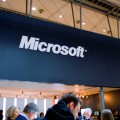 Technology is creating more career opportunities for students with real-world experience and equalizing opportunities whether students attend a small college or an esteemed university, according to John T. Delaney, dean of the School of Business at the University of Pittsburgh
Technology is creating more career opportunities for students with real-world experience and equalizing opportunities whether students attend a small college or an esteemed university, according to John T. Delaney, dean of the School of Business at the University of Pittsburgh
Delaney said potential employers are looking for skills and experience, rather than solely educational requirements, on resumes. According to Delaney’s blog on the Huffington Post, employers are looking for tech-savvy students, not a student with a perfect grade point average who lacks “real-world experience.”
Delaney said that “incorporating experience-based learning” into coursework is necessary for successful students in the digital age.
The Obama Administration agrees that providing resources such as access to Internet and other technology is necessary for the success of today’s students. On June 6, Obama announced in a White House press release an initiative called ConnectED which aims to improve the availability of high-speed wireless and broadband services, pledging to incorporate the Internet into 99 percent of classrooms in the United States.
The move, President Obama said, coincides with student advancement.
“We are living in a digital age, and to help our students get ahead, we must make sure they have access to cutting-edge technology,” Obama said in the statement.
Delaney called this “experience-based learning” — teaching through trial-and-error to utilize technological resources to prepare students for successful careers.
One problem with the current technology in schools, said the Obama Administration, is that only a small percentage of educators have Internet access that meets the needs of their classrooms. With the initiative, the administration is seeking to equip schools with the proper hardware and connectivity. The Obama Administration said ConnectED not only bridges the gap between Internet connectivity and classrooms, but also provides a system to place new technologies in the hands of students, which bolsters “digital learning.”
Aside from accessibility, the University of Pittsburgh dean said the problem is perspective. Although some may consider a technology-driven approach unnecessary, or too progressive, he insists that employers want to see what students can do, and not just what they know on paper. Degrees are one piece of the puzzle, he said, but students must supplement knowledge with “strategic thinking and technology” to secure a career.
[cf]skyword_tracking_tag[/cf]






No Comment